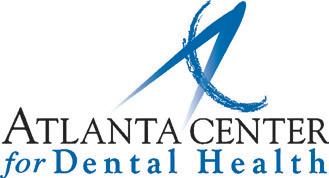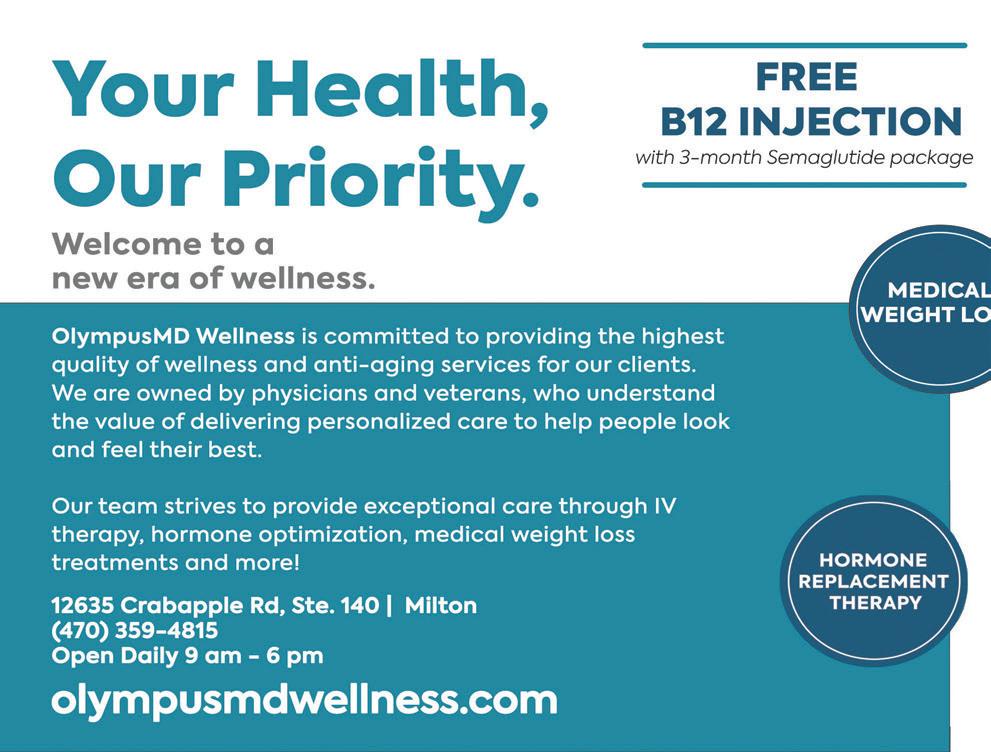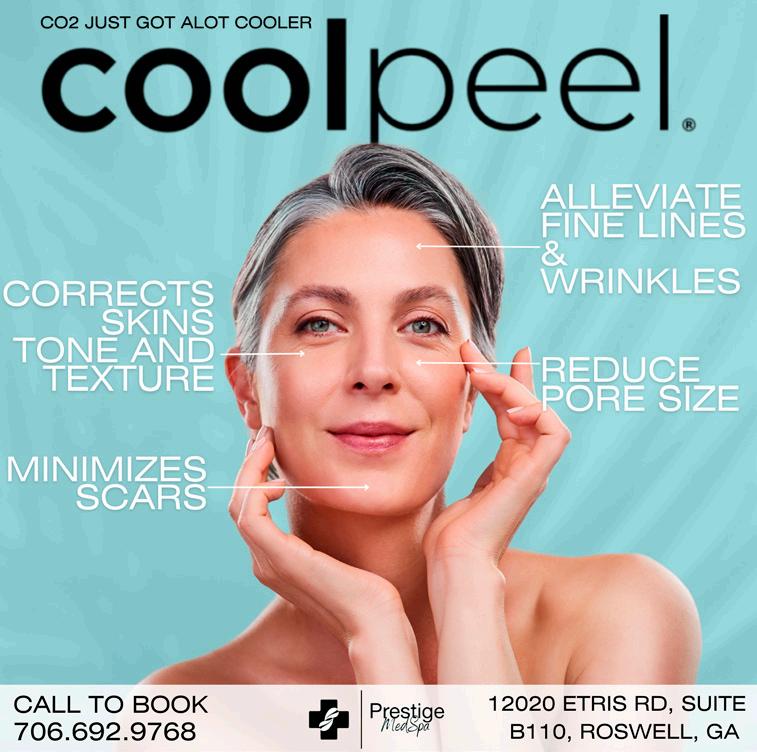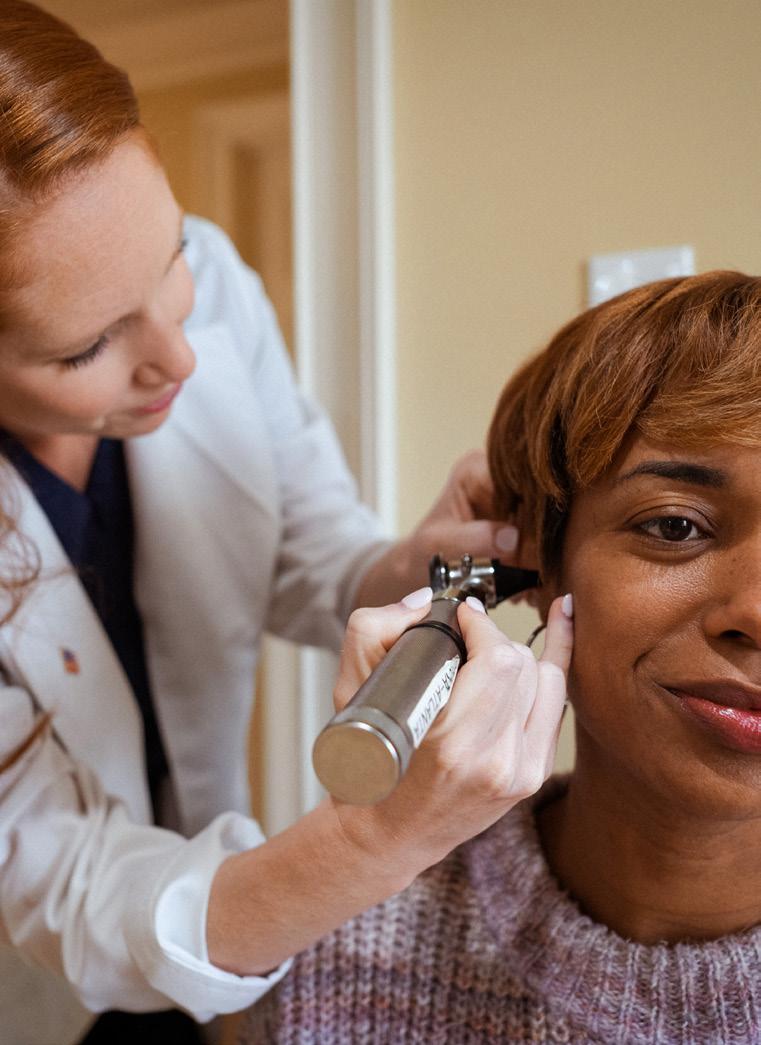




Dr. Brent Taylor is a Board-Certified Dermatologist, a Fellowship-Trained Mohs Surgeon, and is certified by the Board of Venous and Lymphatic Medicine in the field of Vein Care.
He is an expert in skin cancer and melanoma treatment, endovenous laser ablation, minimally invasive vein procedures and cosmetics procedures such as Botox and injectables.
Kathryn is a certified physician assistant with over 22 years experience as a Dermatology PA and cosmetic dermatology.
Her specialties include general dermatology such as acne, eczema, rashes, hair loss, full body skin exams, abnormal growths etc. Kathryn also specializes in cosmetic dermatology including lasers, injectables, micro-needling, PRP, facial peels, sclerotherapy for spider veins and at home skin care.



We always worry about the negative side-effects that a medicine might have. At the end of a pharmaceutical company’s commercials, an auctioneer very quickly states the twenty terrible things that might happen if you take the advertised medicine. Side effects range from your ear falling off when you sneeze to the belief that you are Elvis. Side-effects make almost any medicine sound scary. But occasionally, a positive side effect emerges. Sometimes, we discover something wonderful about a medicine that is wholly unexpected. Examples of positive side-effects are not hard to find. The medicine finasteride was first being used to help decrease the size of the prostate in men who were having difficulty urinating. An unexpected positive side-effect was discovered when it was noticed that many of the men were re-growing their scalp hair. With finasteride, male pattern baldness was often partially reversed or stopped in its tracks.
One of the most recent medications discovered to have a possible positive side effect is lidocaine, which has been around since 1943. Lidocaine is an injectable anesthetic. We use lidocaine for skin biopsies, excisions, Mohs surgeries and countless other procedures every day in the dermatology office. Amazingly, lidocaine may be more than an anesthetic. It may also have anti-cancer effects.
A team of surgeons in India operating on breast cancer divided patients into two groups. One group had standard breast cancer surgery. The other group received a lidocaine injection around the tumor 7-10 minutes prior to surgery. During the 5 years after surgery, the group that received the lidocaine injection had an 8.5% rate of the cancer recurring (popping up again) at a distant site versus an 11.6% rate of distant recurrence in the surgeryonly (no lidocaine) group. The study has some limitations including not being a double-blind trial and being a single-
center study, but it is intriguing enough to warrant further investigation. The authors reported that injecting lidocaine around breast cancer before removing it increased survival in their study.
What made the surgeons perform this study in the first place? Why lidocaine? Over the last few years, researchers have discovered that electrical gradients maintained across the membranes of cancer cells are important to their ability to metastasize or spread. Our cells have pumps in them called “ion channels.” They allow certain ions to pass across the cell membrane. The resulting ion concentration gradient creates an electrical charge across a cell. This gradient affects the way other proteins in the cell function. Importantly, some of the proteins affected by the charge across a cell membrane are important for healthy cells’ growth and development as well as for cancers’ ability to grow and spread.
Lidocaine works by blocking sodium channels in cell membranes. Disrupting the electric charge across a cancer cell membrane was suspected to have the potential to weaken the cancer itself. Preclinical studies supported this hypothesis, and the breast cancer surgeons took the next step of performing a trial with breast cancer patients and peritumoral lidocaine injections.
I don’t know if breast cancer surgeons in the United States consider these results valid, are awaiting confirmatory studies or are already injecting lidocaine. However, in dermatology, these results are exciting because, for now, we do not need to change anything that we are already doing. Every day that I perform Mohs surgery, we inject the area around a tumor with lidocaine prior to surgically removing the cancer. If lidocaine is more than an anesthetic, then our patients are likely already benefiting from any anti-cancer properties that lidocaine has.
Mohs surgery is the gold standard for treating most skin cancers and has a cure rate that is usually at or above 99%. Perhaps lidocaine is one of the secrets to this success.
Dr. Bradley Hepler, Atlanta Center for Dental Health
I don’t know about you, but I am ready for Spring. I can’t wait for the weather to warm up. I want to walk and run and spend more time outside. I can’t wait to see everything start blooming and everything get greener. Spring is coming! It’s time to get ready. It’s time to get in shape! It’s time for Spring Cleaning! Do you need a Spring dental cleaning or maybe a Smile Tune-up?
This year, let’s eat healthy, exercise, and address our health proactively and preventively. This includes a visit to the dentist to address those problems that you know are getting worse and to prevent future problems.
• Restoring Your Smile – Repairing your teeth allows you to keep your teeth for a lifetime and look and feel your best.
• Cosmetic Dentistry – It’s more than just Whiter Teeth. Uneven and chipped teeth can be reshaped painlessly. You can make your smile

healthy and vibrant again and create the smile of your dreams.
• Dental Implants – Replacing missing teeth allows you to eat your favorite healthy foods again, smile without fear, and provides support to

your face to avoid looking older.
• Invisalign – The metal-free way to straighten your teeth, improve your bite, and have an attractive smile that everyone notices.
• Preventive Tooth Cleaning –
Routine cleanings prevent problems and keep your teeth healthy, white, and attractive.
• Don’t Forget that these things can be accomplished comfortably while you rest… with Sedation Dentistry!
“Preventive Dentistry can add 10 years to human life.”
-Dr. Charles Mayo of the Mayo Clinic
A healthy mouth is part of a healthy body. Our wish for you is that you look and feel your best!
Dr. Bradley Hepler and the experienced team at the Atlanta Center for Dental Health provide the most modern advances in complete dentistry. Experience immediate results with procedures to greatly enhance your smile and your health. If you would like a complimentary consultation to discover which of these options is best for you, please call us at 770-992-2236. Dr. Hepler is highly trained to provide you with the latest and best techniques to allow you to achieve your cosmetic and restorative goals.


Brought to you by – OlympusMD
When it comes to taking charge of your health, there’s no such thing as a one-size-fits-all approach. Especially in integrated wellness, where personalized care is the key to unlocking your body’s full potential, understanding your unique physiology becomes essential. This is where lab results come into play—providing an in-depth look at your body’s inner workings and guiding you toward the best IV therapy, peptide therapy, nutraceuticals, or gut health solutions for your needs. Whether you’re new to these advanced wellness options or looking to optimize your current routine, lab testing acts as your personalized roadmap to better health.
Why labs are essential for personalized wellness
Your health is unique, and so are your body’s needs. Reviewing labs consists of analyzing specific biomarkers that provide insight into your overall health and highlight areas for improvement. By understanding these markers, healthcare providers
can tailor treatments to your body’s specific requirements, ensuring you’re not wasting time or effort on generic solutions that may not work for you. When you have this information in hand, you can make informed decisions about your integrated wellness plan, knowing that every treatment or supplement you choose is backed by science.
How labs determine the best wellness solutions
IV Therapy is a direct and effective way to replenish essential vitamins, minerals, and hydration. But not all IV treatments are created equal. By obtaining labs, your healthcare provider can pinpoint what your body is lacking— whether it’s vitamin C, magnesium, or a combination of nutrients—and create a thoughtfully curated IV therapy plan. This precision ensures you receive exactly what your body needs, whether you’re addressing chronic fatigue, boosting immunity, or recovering from a tough workout. Peptides, small chains of amino acids, are increasingly popular for enhancing cellular function, metabolism,

and tissue repair. However, their effectiveness hinges on understanding your body’s baseline. For example, labs can determine your growth hormone levels, insulin sensitivity, or even inflammatory markers. This data allows experts to select the best peptides, such as CJC-1295 for growth hormone optimization or BPC-157 for injury recovery and gut health, tailored to your specific needs.
Nutraceuticals combine nutrition

Crabapple Rd., Ste. 140 | Milton (470) 359-4815
Mon. – Fri. 9 am – 6 pm Sat. - Sun. 9 am – 4 pm

and pharmaceuticals—think vitamins, minerals, and plant-based compounds tailored to address specific health goals. Without labs, selecting nutraceuticals can feel like guesswork. With lab results, you can cut through the noise and focus only on what your body truly needs. For instance, labs may reveal that you’re low in omega-3 fatty acids, prompting the inclusion of a high-quality fish oil supplement in your routine. Gut Health is often considered the gateway to overall health, influencing everything from immunity to mental well-being. Labs allow practitioners to look deep into your gut health using tools like microbiome mapping, stool analysis, and inflammation markers. This information forms the foundation for a tailored gut health plan, addressing problems like leaky gut, food intolerances, or microbiome imbalances.
Curious about how lab results could transform your health? Connect with a wellness expert today to explore your options. Start uncovering the insights hidden in your health profile and take the first step toward a more vibrant life. Contact OlympusmdWellness.com today.



1. Avoid staining: Avoid tobacco and limit stain causing and enamel eroding acidic foods and drinks.




In order to understand a youthful smile, one needs to know the look of aging teeth. An aging smile can occur as a person gets older, however, they can be influenced by various factors such as oral habits, lifestyle choices, and dental hygiene care…at any age!
Some of the most common features of an aging smile are:
1. Teeth yellowing: Over time, and many coffee/tea, chocolate, wine and tobacco indulgences later, teeth can lose their natural brightness and present more yellow.
2. Tooth wear and tear: Years of grinding, taking out one’s stress on one’s teeth, and misaligned teeth can contribute to excessive and uneven tooth wear and flatter and shorter surfaces.
3. Gum recession: gum recession exposes the darker root surfaces and makes teeth look longer and less esthetic.
4. Tooth loss: missing teeth can impact the appearance of one’s smile and contribute to decreased lip and cheek support and fullness causing facial changes.
5. Teeth crowding: As we age our teeth have a tendency to shift in a forward direction, causing the front teeth to become more crowded.
To maintain a youthful smile here are a few tips:
2. Whitening: professional dental whitening can remove most stains and bring back the luster and brightness to one’s teeth.
3. Resin bonding: Tooth colored fillings do a beautiful job of masking exposed root surfaces and restoring the beautiful shape of the teeth, and thus enhance one’s smile.
4. Tooth replacement: In today’s world, replacing a tooth with implant therapy is the gold standard of dentistry and has long lasting benefits in maintaining the longevity of one’s dentition.
5. Orthodontics: Crooked and misaligned teeth can be corrected using braces or aligners and immediately restore the “wellness” of the smile. It is amazing what a straight smile does to restore youthfulness and confidence! 6. Occlusal guard: A bite guard can shield the teeth from the harmful effects of clenching and grinding.
Maintaining a youthful smile is a lifelong commitment to YOURSELF! Regularly consulting with a good dentist who is committed to your optimal dental health and smile will help ensure personalized advice and appropriate care and methods keep your smile healthy and youthful.
Call us for a free consultation (upon mention of this article) on how we can help you rejuvenate your smile!


Brought to you by - Wellstar
For many people, talking about colon health can be a little uncomfortable, but potential medical issues don’t just go away if you ignore them.
Being proactive about your wellbeing with preventative care can help catch colorectal cancer or another serious condition early—often before it becomes a bigger problem.
Wellstar is committed to keeping your colon healthy with preventative screenings and expert care, so you can continue to live well.
Early detection is the best prevention, especially when it comes to colon cancer. People at average risk should start colonoscopies at age 45. Those with a higher risk or a family history of colorectal cancer may need
to start screening sooner. Partner with your care team to create a personalized screening plan—and stick with it to stay ahead of the disease.
The death rate for colon cancer in older adults has been decreasing for the past several decades due to screenings, according to the American Cancer Society. Screenings can identify polyps before they become cancerous and can catch cancer earlier when it is more easily treatable. However, in people under 55, death rates from colon cancer have been increasing by about 1% per year since the mid2000s.
During a colonoscopy, a Wellstar gastroenterologist will view the inside of your colon and look for polyps or any other abnormal tissue that could be cancerous. This preventative testing is key to catching colorectal issues at
the start. Polyps take about five to 15 years to evolve into an invasive cancer, so regular colonoscopies can catch polyps before they become cancerous. The procedure itself is not painful.
Colon cancer is typically discovered when a patient has a colonoscopy, but it’s important to watch for these warning signs:
• A change in your bowel habits, such as persistent diarrhea or constipation
• Bloody stools or rectal bleeding
• Abdominal discomfort, such as cramps, gas and pain
• Feeling like you are unable to empty your bowels completely
• Weakness or fatigue
• Unexplained weight loss
If you experience any of these symptoms, contact your care team right away.
Colorectal cancer care at Wellstar
If you have been diagnosed with colorectal cancer, count on Wellstar for comprehensive, personalized care. Our specialists will work together with you to form a tailored treatment plan and offer support every step of the way.
Wellstar offers medical expertise close to home, clinical trials and state-of-the-art surgical procedures to treat colorectal cancer. We also have a multidisciplinary gastrointestinal (GI) tumor board that diagnoses and creates treatment plans collaboratively.
Along with cancer surgeons, medical oncologists and other experts, our care team also includes nurse navigators, dietitians, social workers, psychologists, psychiatrists and counselors to provide complete care and support.
Visit wellstar.org/gastro to learn more about gastroenterology care.

At Wellstar, you’ll find a multidisciplinary team of cancer care experts built around your needs and dedicated to comprehensive, personalized treatment.
We are a leader in cancer care, embracing innovation to improve patient outcomes. Our surgeons perform a variety of minimally invasive procedures—providing patients with smoother recoveries and less pain. We also support patients during their cancer journeys with STAT Clinics, which bring cancer care clinicians together and put people at the center of their treatment. With this multidisciplinary approach, patients start care sooner, optimizing treatment and outcomes. wellstar.org/northfultoncancercare



Most people think of plaque as a problem that affects only their teeth. Dentists warn us about plaque buildup leading to cavities and gum disease, but what many don’t realize is that the same plaque lurking in your mouth could also be harming your heart and brain. Mounting research shows a striking connection between oral health and systemic diseases, particularly heart disease and cognitive decline.
The link between oral plaque and heart disease
The impact of oral plaque doesn’t stop at the heart—it also affects the brain. Recent studies indicate that poor oral hygiene may contribute to neurodegenerative diseases such as Alzheimer’s. Like its role in heart disease, oral bacteria can enter the bloodstream and travel to the brain, triggering inflammation and potentially contributing to the formation of amyloid plaques, a hallmark of Alzheimer’s disease.
• Spa-Like Relaxing Atmosphere
• Free Nitrous Oxide and Oral Conscious Sedation
• Cone Beam 3D Radiography
Digital Scanner – No More Gooey Impressions
• Botox and Dermal Filler
Master Injector
• Platinum Invisalign Provider


Plaque in your mouth is a sticky film of bacteria that forms on your teeth when food particles and saliva mix. If not removed through brushing and flossing, this plaque hardens into tartar, leading to gum disease (periodontitis). The bacteria from gum disease don’t just stay in the mouth— they can enter the bloodstream and trigger inflammation throughout the body.
Chronic inflammation is a key factor in heart disease. When oral bacteria reach the arteries, they can contribute to the formation of arterial plaque—the fatty deposits that clog blood vessels and increase the risk of heart attacks and strokes. Studies have shown that people with gum disease have a significantly higher risk of developing cardiovascular conditions, including high blood pressure and atherosclerosis (narrowing of the arteries).
One of the most well-documented bacterial culprits is Porphyromonas gingivalis, a pathogen found in gum disease patients. Researchers have discovered this bacterium in the arterial plaque of heart disease patients, suggesting a direct link between gum infections and cardiovascular complications.
Scientists have found P. gingivalis in the brains of Alzheimer’s patients, further strengthening the connection between oral bacteria and cognitive decline. Inflammation caused by gum disease may accelerate brain cell damage, leading to memory loss and other cognitive impairments. Additionally, poor oral health has been linked to an increased risk of strokes, which can further contribute to dementia and other neurological issues.
By taking care of your teeth and gums, you’re also protecting your heart and brain. Your oral health is a vital part of your overall well-being— don’t overlook it! Dr. Hood and her team at Roswell Dental Care help you understand your health status and risks and customize your treatment. We assure you will feel confident in the solution you choose before beginning any treatment. For enhanced comfort, we offer FREE nitrous oxide. You can rest assured that your experience will be positive, relaxing, and rewarding on many levels.
Give our office a call at 770.998.6736, or visit us at www. roswelldentalcare.com, to begin your journey to happy and pain-free oral healthcare!

Brought to you byAlyssa Kiss, M.A., Summit Counseling Center
Parents raising a teen in today’s world of technology can often experience confusion, stress, and judgement from others for their decisions surrounding social media use and screen time. There are mixed messages, a lack of sufficient research, and little support out there to help parents navigate these tough decisions. As a therapist who primarily works with adolescents, teens, and young adults, I am surrounded by the issue of social media and phone addiction. Often, I work with parents who say the same thing – “I don’t want them to be on their phones so much, but I also don’t want them to be isolated from their friends.”
There is no doubt that screen time and social media are impacting us all, especially kids and adolescents. This age group is inundated with screen time which is causing issues with attention and the brain’s reward system. The research we currently have clearly shows that excessive screen time can impact social-emotional development, language development, and executive functioning. These can deeply impact adolescents who are already struggling with increased academic pressure and developing peer relationships.
So, what can we do about it? I have often found myself after a day of sessions with adolescents just wishing that I could wake up and social media would have vanished. I see the impact it has on these students while also knowing it is unrealistic to believe that it can be completely cut out of anyone’s life. Here are a few tips about navigating this difficult topic.

1. Have an open discussion. Help educate your child on the impact of social media and screen time. Oftentimes kids don’t understand or fully realize why their parents are limiting their screen time. Take some time to openly talk to your child about the ways that social media and screen time impact them without using judgements.
2. Educate yourself on the issue. This is a very complex issue with lots of different things to consider. Take some time to read up on the research and tips from leaders in the field. Here are a few recommendations:
a. Screenwise: Helping Kids Thrive (and survive) in Their Digital World by
Dr. Devorah Heitner
b. The Distracted Mind: Ancient Brains in a High-Tech World by Adam Gazzaley and Larry D. Rosen
3. Model the relationship with your phone that you want your child to have.
Kids are constantly watching their parents to learn about the world around them. This is no different when it comes to screen time and social media use. By modeling the relationship with technology that you would like your child to have, it can help your kids learn how to navigate their use of technology.
4. Implement screen time limits that
your child is actively involved in. Use collaboration with your child to set screen time limits that they can understand and feel a part of. Giving a teen or adolescent a level of autonomy in their own screen time typically helps them adhere to the rules set. This varies given the child’s age and is best suited for middle and high school students.
5. Give yourself grace and be flexible. We are in unprecedented times as we all learn to navigate the way technology has so prevalently impacted our lives. Remember to be kind to yourself and maintain a flexible mindset. As we learn new things in this area, give yourself space to adjust your stance or approach.



Brought to you by - Dr. Kehinde Olumesi of Epiphany DermatologyBrookhaven
As skin matures, it undergoes various changes that necessitate regular skin checks to ensure overall skin health. Differentiating between age spots, healthy moles and potential skin cancers is crucial. Age spots, often appearing as flat, brown, or black spots on sun-exposed areas, are generally harmless but can be mistaken for more serious conditions. Early detection of skin cancer, including melanoma, basal cell carcinoma and squamous cell carcinoma, significantly increases the chances of successful treatment. Therefore, routine skin examinations are essential for mature skin to maintain health and catch any issues early.
Addressing skin conditions and rejuvenation procedures
Dermatologists can assist with a variety of skin conditions and rejuvenation procedures for mature skin. Common issues such as dryness, age-related pigmentation and conditions like rosacea, psoriasis and eczema, which can persist or develop with age, are also addressed with specialized care plans.
In addition to treating conditions, dermatologists offer rejuvenating procedures to enhance the appearance and health of mature skin. Treatments such as chemical peels, laser rejuvenation and injectable treatments like BOTOX® Cosmetic and dermal fillers can reduce the appearance of wrinkles, improve skin texture and promote collagen production. These procedures not only rejuvenate the skin but also boost confidence and overall well-being. Establishing a relationship with a dermatologist ensures that your skin receives comprehensive care tailored to its evolving needs, promoting longterm skin health and vitality.






Brought to you by - Atlanta Hearing
Atlanta Hearing Associates is dedicated to our mission to make each patient feel like they are a part of our family.
Atlanta Hearing Associates is a large audiology practice that encompasses 5 different locations throughout Georgia. Our offices provide comprehensive hearing tests, tinnitus assessments, ear cleaning, and hearing devices for all ages.
Every doctor you will meet is focused on your needs as a patient and works with every manufacturer to provide a personalized fitting.

Each location utilizes state of the art technology and family-oriented care to help guide our patients to the best hearing devices and information on hearing healthcare.
We also partner with different agencies to provide audiological care to veterans, ATF officers, reservists, police departments, Cochlear implants recipients, and community wellness groups.
We accept all major insurances for patients who have a hearing healthcare benefit that they are eligible to use.
Our offices are located in Atlanta, Decatur, Dunwoody, Lake Oconee, and Milledgeville.






























Did you know that negative emotions such as stress increase cancer risk substantially? A study published several years ago found that women who experienced a significant, negative life event had an increased risk of developing breast cancer. The breast cancer risk was even greater in women who experienced a severely striking life event. Other studies have shown similar findings regarding stress and cancer risk.
We know that stress sets off a cascade of events inside the body involving various hormones and neurotransmitters which affect the health of the body’s cells. Our current understanding is that significant stress, especially over the long term, causes

significant damage and dysfunction in the body which can result in cancer. It turns out that the mind isn’t a separate entity from the body, but rather, in close communication with the body at all times, with tremendous power over how the body functions!
The good news is that there are many strategies we can adopt in order to reduce our stress and anxiety. I highly recommend a regular daily practice of prayer and meditation. Exercise, being outside in nature, breathing techniques, and engaging in healthy relationships with others are also proven stresslowering strategies.
































